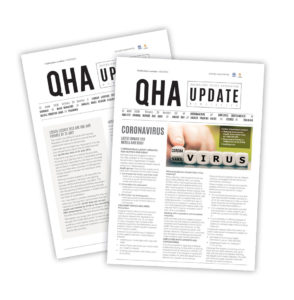Queensland legislation about access for dogs on premises is found in the Guide, Hearing and Assistance Dogs Act 2009, and allows persons who rely on dogs of this type to have the same access rights as others to visit or stay in hotels..
A guide, hearing or assistance (GHA) dog is specially trained to perform specific physical tasks and behaviours to assist a person with a disability. Under this Act, dogs are certified and are easily recognised by the badge on their coat or harness. The disabled person also carries an identity card which should either be worn or made available as required e.g. when seeking accommodation.
Apart from the well-known vision impairment dogs, there others that assist people with a disability in their day-to-day activities, and this can include forms of mental or psychological impairment. The legislation makes it an offence for an accommodation provider to refuse to rent a room because a person with a disability is accompanied by their certified GHA dog.
It is lawful to refuse accommodation for a genuine reason e.g. the hotel is fully booked. You cannot charge an extra payment because the dog is present e.g. for ‘extra’ cleaning. Certified GHA dog and handler are permitted access into your hotel dining room and bars (both inside and outside) but not any food preparation area.
Unrelated to the GHA dog legislation, under the National Food Standards Code (enshrined in our Food Act 2006), a patron or guest with a pet or companion dog is allowed access to external eating and drinking areas of a hotel, café, restaurant etc as long as this doesn’t take place in or gain access by an enclosed area. This is not a right – the venue owner decides whether this happens or not on their premises.


